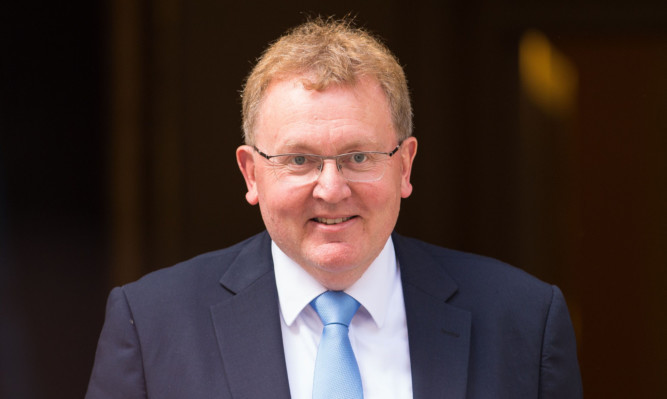The UK Government has confirmed it will reject the SNP’s call for the power to implement full fiscal autonomy for Scotland.
Scottish Deputy First Minster John Swinney said fiscal autonomy is the best route to fulfil Scotland’s potential – but Scottish Secretary David Mundell said it will cost every family in Scotland £5,000.
Mr Mundell described the plan as a “full fiscal shambles” and confirmed the UK Government will reject an SNP amendment to hand MSPs the power to move to full fiscal autonomy at a time of Holyrood’s choosing.
The first day of the committee stage of the Scotland Bill begins today on the floor of the House of Commons when MPs will scrutinise the legislation line by line.
The Scotland Bill will bring into law many of the new powers agreed by the all-party Smith Commission and make the Scottish Parliament one of the most powerful devolved parliaments in the world.
The Scotland Bill was the first Government Bill to be introduced after the general election and is now the first Bill to reach the committee stage.
Speaking ahead of the committee stage, Mr Mundell said: “The Prime Minister has made it clear that the Government will carefully consider any changes to the Bill that are sensible.
“An amendment that kills off the Barnett formula and ends the sharing of resources across the UK is about as far away from sensible as one can get. It would be a full fiscal shambles that would cost every family in Scotland around £5,000.
“The Government will not accept amendments that are not good for Scotland. The Institute for Fiscal Studies has estimated that fiscal autonomy would mean Scotland having almost £10 billion less to spend by the last year of this Parliament. That is not good for Scotland. That is why the Government will stand up for Scotland and resist the amendment.”
With fiscal autonomy expected to be off the table, Mr Swinney said the SNP will focus on securing more limited additional powers beyond those recommended by the Smith Commission, including business taxes, employment law, minimum wage, further welfare power and equality law.
Mr Swinney said: “The Scotland Bill must deliver real power for the Scottish Parliament. It must fulfil the Smith Agreement in full, but we have always said we will argue for more levers to grow our economy and tackle inequality.
“The Scottish Government believes we should move towards full fiscal autonomy as the best route to fulfil Scotland’s potential.
“In the meantime, we are prioritising the transfer of additional powers to incentivise key sectors, raise productivity and attract investment.
“Powers over the minimum wage, employment policy and benefits would allow us to build a coherent approach to training, education and support for people out of work or experiencing in-work poverty.
“We would use powers over equality to create a fairer society by tackling the gender pay gap and strengthening protection from discrimination.
“These are our priorities and I will be making the case for swift devolution of further powers to the Secretary of State for Scotland.”
